We Asked You And Our Experts About Comparison Culture — The Results Are In And We're Alarmed
Comparison Culture is a huge problem for a lot of people, including young children.
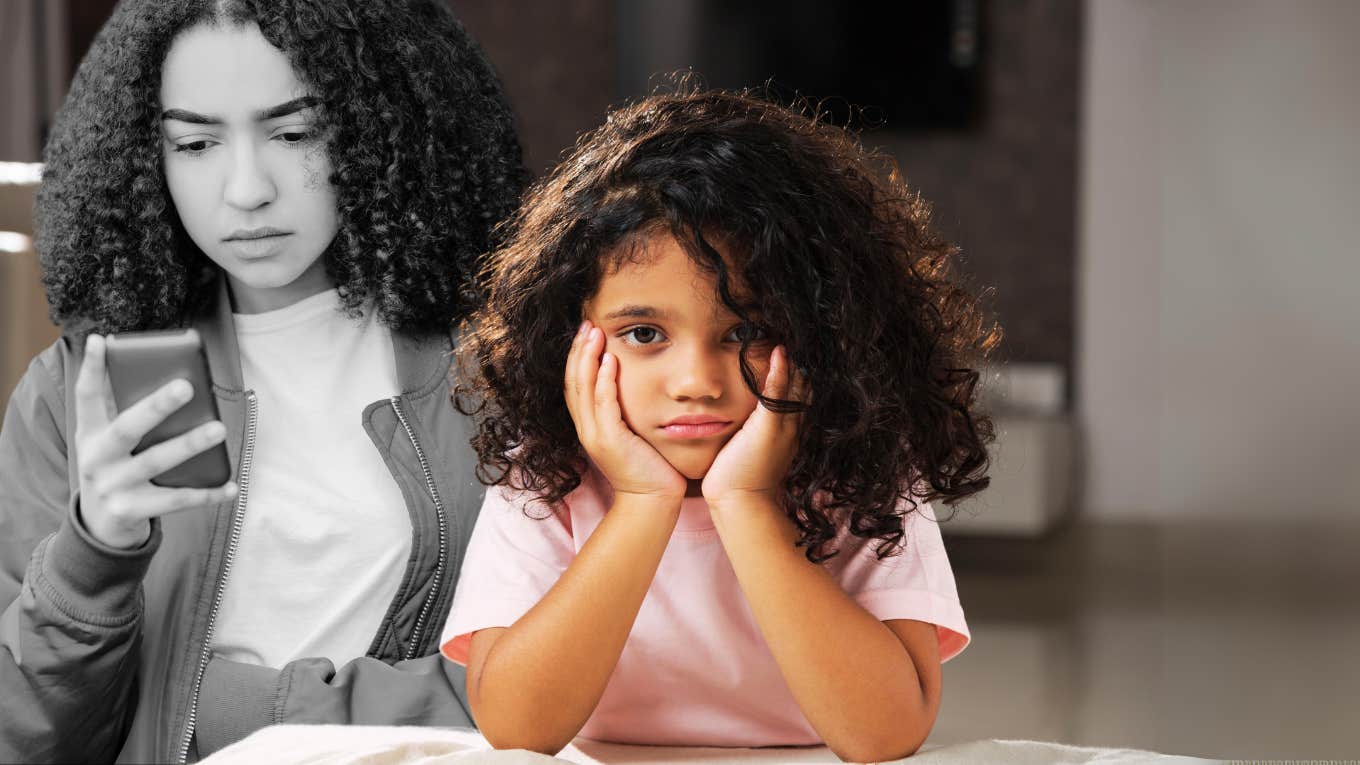 Darren Baker, Deepak Sethi from Getty Images Pro
Darren Baker, Deepak Sethi from Getty Images Pro Comparison Culture is a pervasive phenomenon in which individuals habitually engage in the practice of measuring themselves, their achievements, possessions, and life circumstances against those of others.
In September 2023, YourTango conducted a survey of people from every US state and several countries to find out how Comparison Culture impacts their lives and the lives of people around them.
Of the 723 respondents, 30% said they were Baby Boomers, 39% said they were Gen X, and 31% said they were Millennials and Gen Z. Twelve percent of respondents identified as male, 86% identified as female, and 1% identified as non-binary.
What we uncovered is truly alarming and confirms our intuition about how insidious and destructive Comparison Culture is. The survey revealed that this societal phenomenon doesn’t merely pervade and pervert social media, it spills over into people’s real lives in insidious, often troubling ways.
2023 YourTango Comparison Culture Survey Results
How much time per day do you spend online? This includes social media, streaming news and entertainment, etc.
- Less than 1 hour - 6%
- 1-3 hours - 41%
- 3-5 hours - 32%
- 5+ hours - 21%
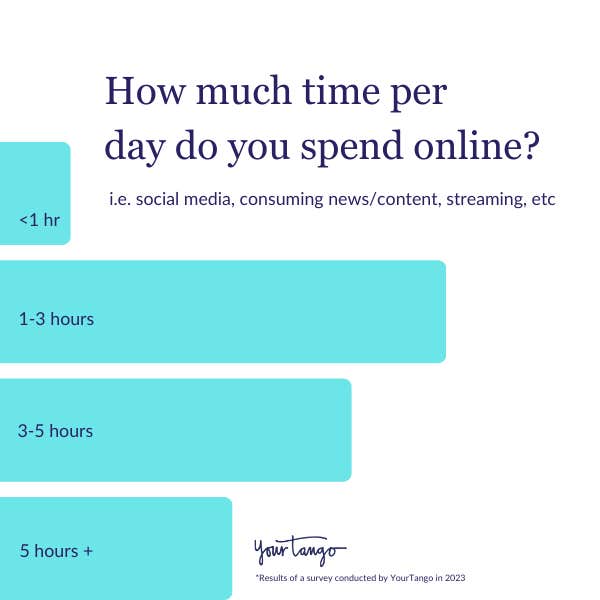
What contributes most to Comparison Culture?
- Social media - 71%
- Ads and entertainment - 20%
- Family - 6%
- Other - 3%
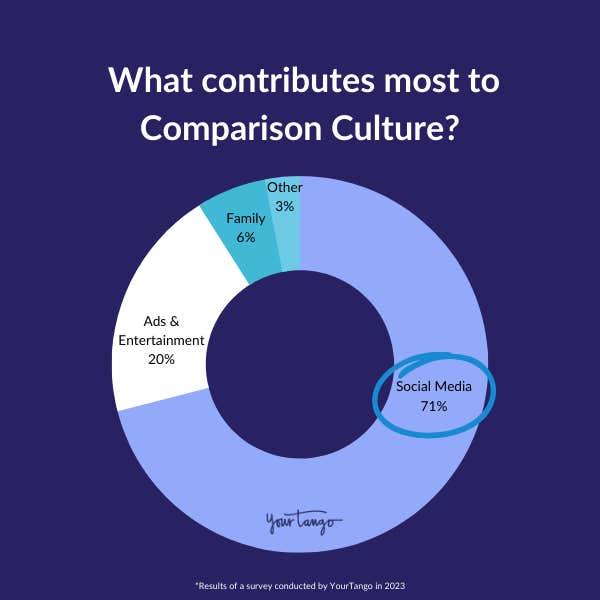
56% agree that comparing yourself or your circumstances can be motivating and valuable to learn, grow, change, and achieve more.
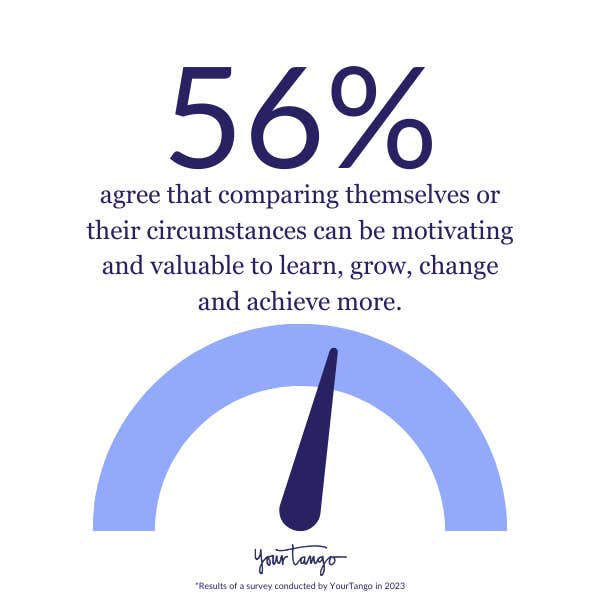
62% say Comparison Culture is somewhat to significantly problematic in their lives.
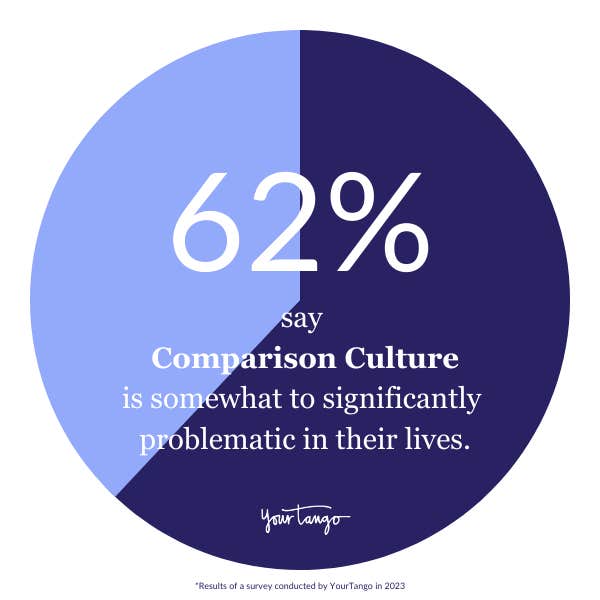
79% say Comparison Culture is somewhat to significantly problematic in the lives of others.
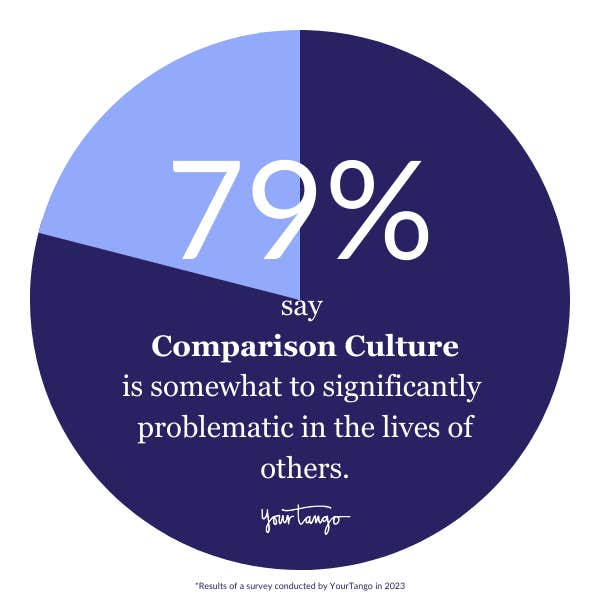
What activities are you doing most often when you compare yourself to others?
- Scrolling social media - 64%
- Observing people IRL - 59%
- In-person interaction - 40%
- Watching TV or movie - 36%
- Alone with my thoughts - 29%
- Reading a book - 8%
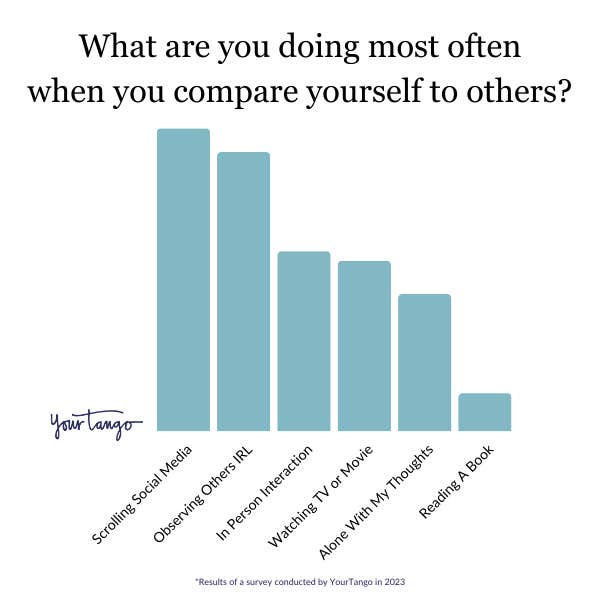
Emotions felt while comparing themselves to others on social media:
- Inadequacy - 60%
- Jealousy - 46%
- Sadness - 40%
- Gratitude - 32%
- Shame - 28%
- Compassion - 27%
- Acceptance -26%
- Anger - 18%
- Pride - 14%
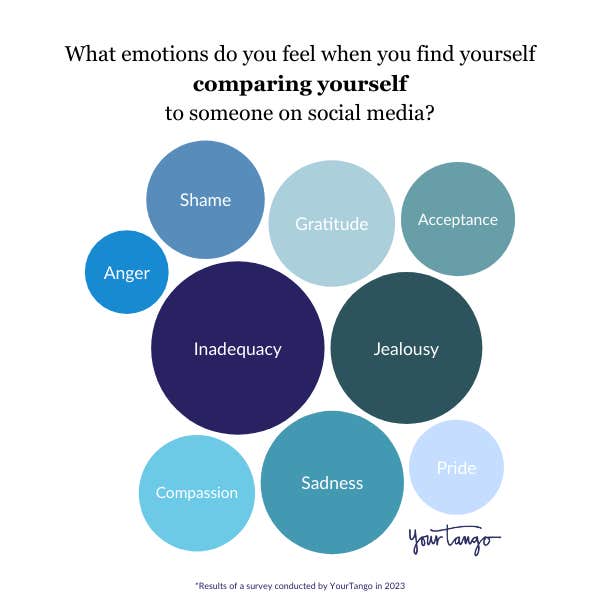
60% of adults feel inadequate when comparing themselves to others on social media.
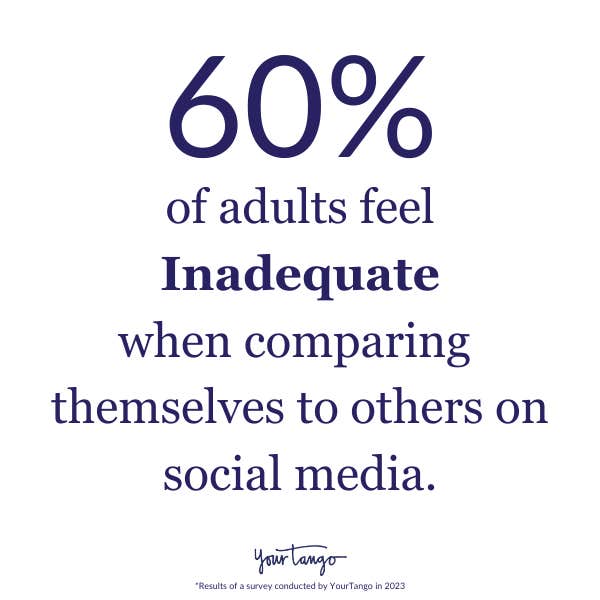
73% say there is a correlation between Comparison Culture and depression or other mental health challenges.
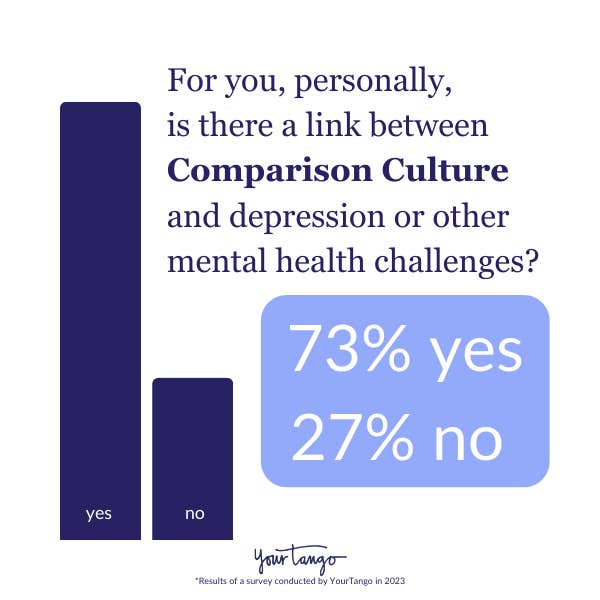
89% feel Comparison Culture is increasing when compared to the last decade.
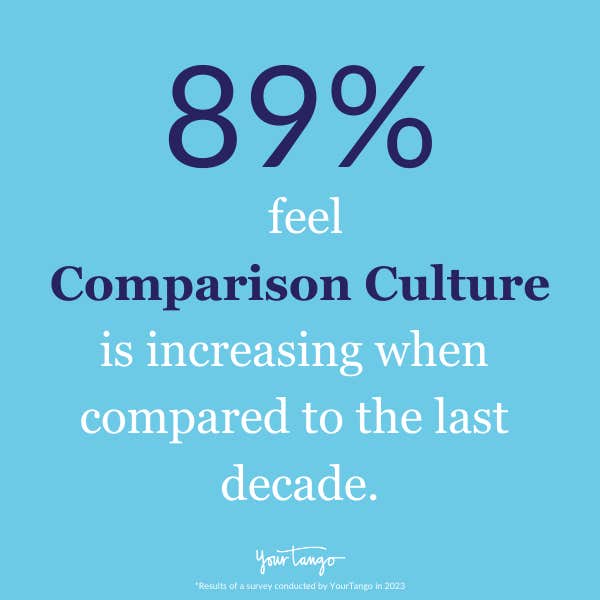
75% say Comparison Culture motivates them to change in healthy ways.
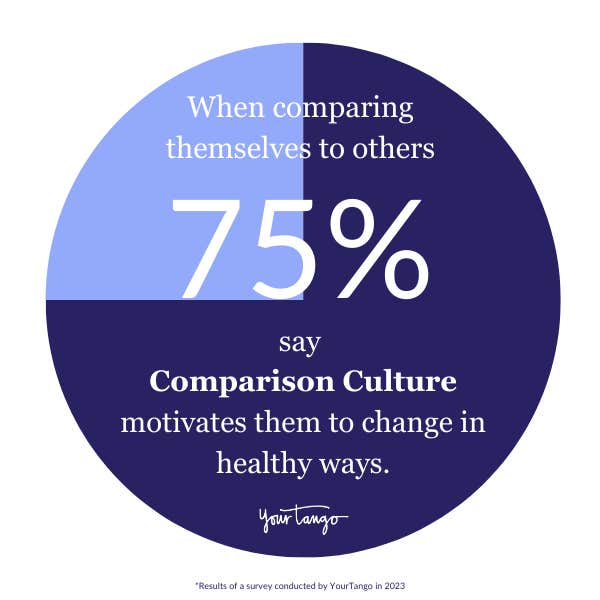
Does Comparison Culture cause you to want to give up?
- Yes - 35%
- No - 65%
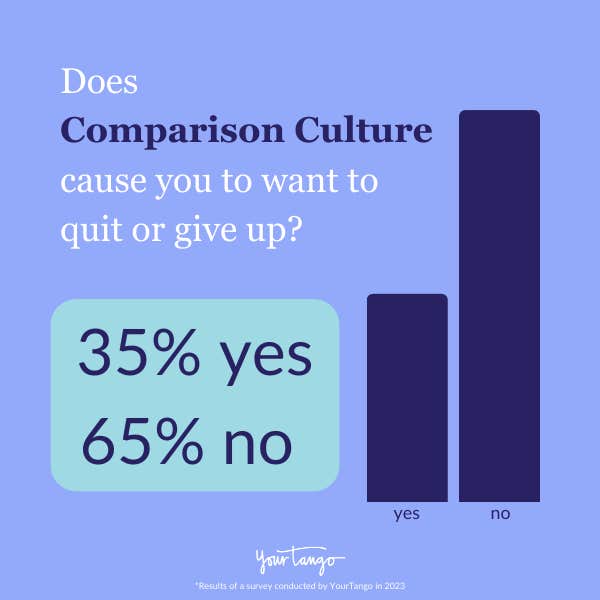
At what age did you begin to compare yourself to others?
- Younger than age 11 - 42.5%
- Age 11 to 18 - 38.2%
- Age 19 to 25 - 7.7%
- Age 26 to 39 - 5.9%
- Age 40 and older - 5.9%
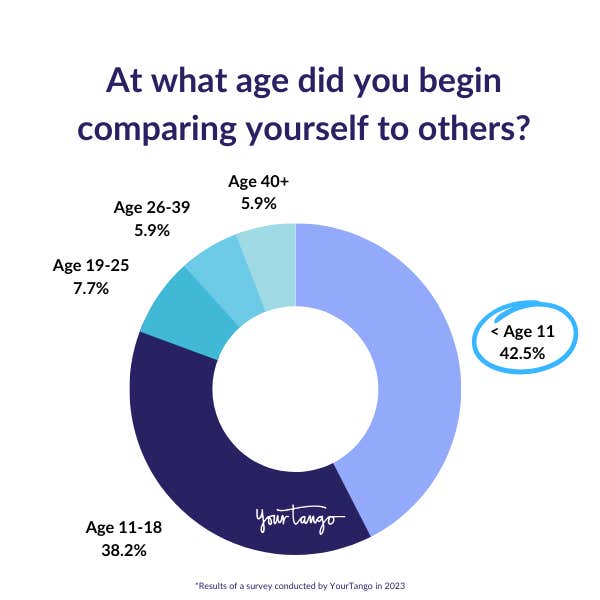
97% of parents of 12-18 year olds believe comparison culture is a somewhat, substantial, or a huge debilitating problem for their children.
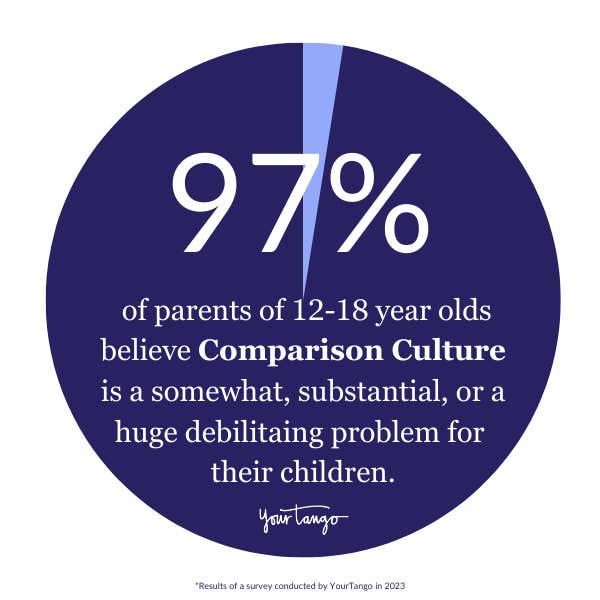
21% of parents feel Comparison Culture is a substantial - debilitating problem for their children.
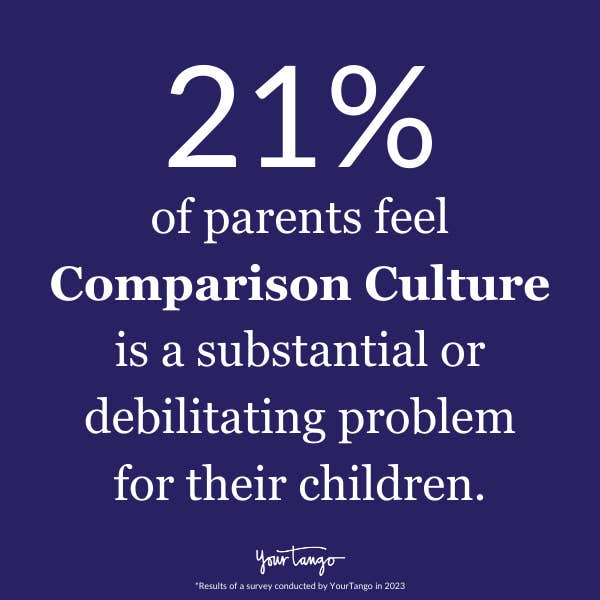
One in five adults are negatively impacted by Comparison Culture at least once a day.
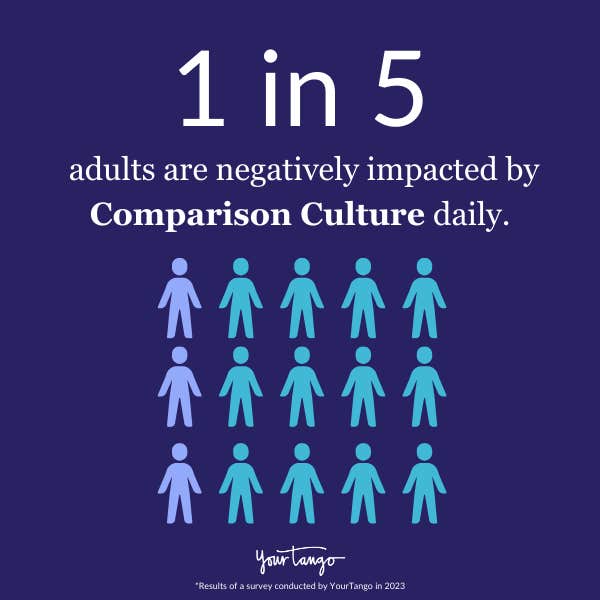
Is it possible to quit comparing ourselves to others entirely?
- Yes- 24%
- No - 21%
- No, but we can be more mindful and try to reign it in - 55%
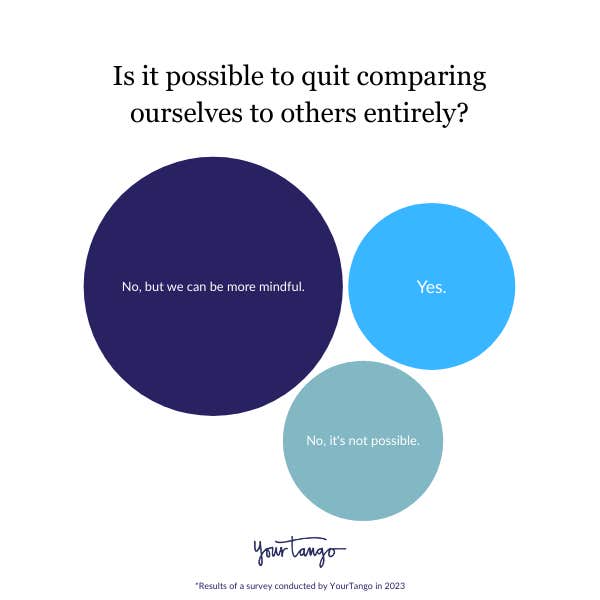
What do you most compare about yourself to others?
- Body image - 68%
- Finances - 51%
- Life milestones - 34%
- Career - 25%
- Relationship status - 21%
- Family - 19%
- Other - 7%
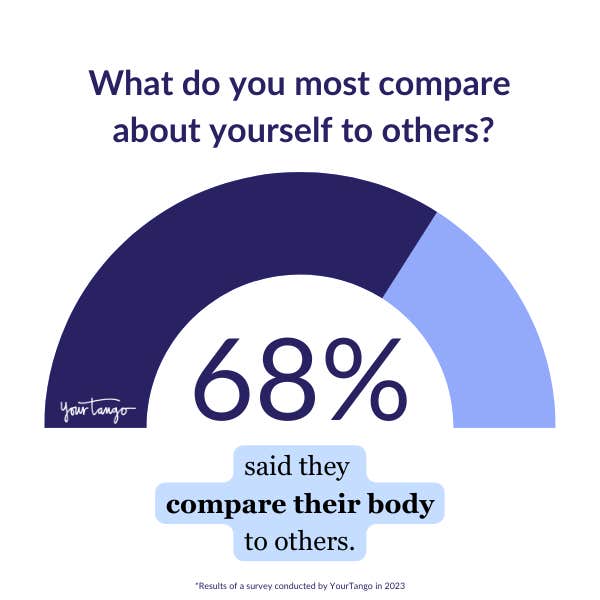
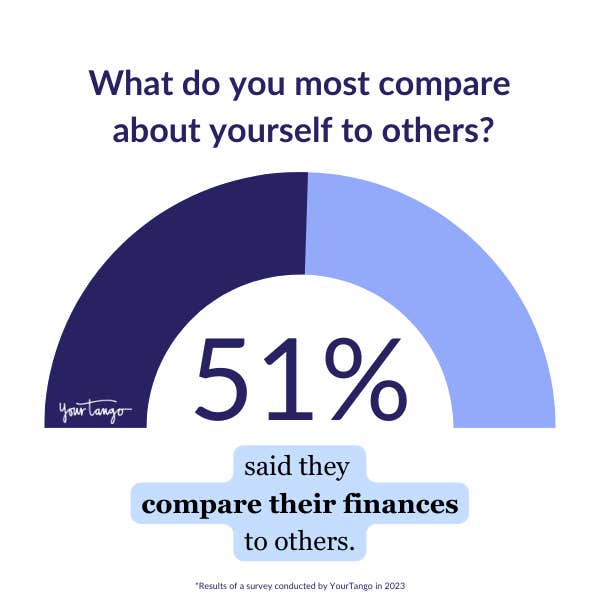
67% say Comparison Culture impacts their relationships to some degree.
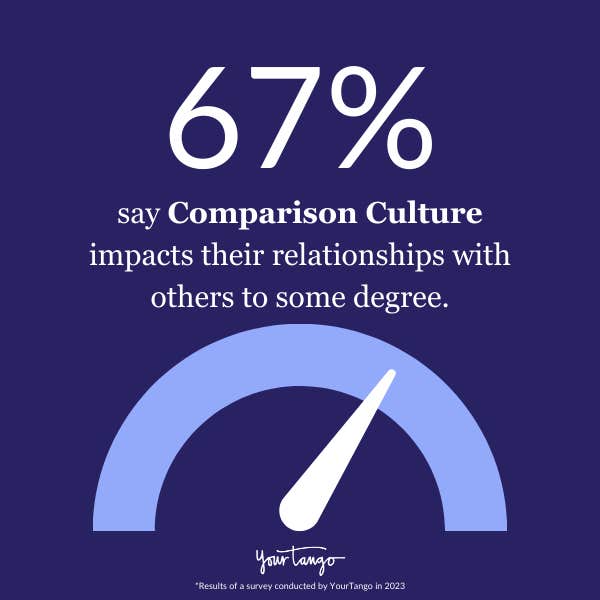
Expert Insights into our findings on Comparison Culture
In addition to polling our audience, we also reached out to our experts — behavioral and mental health professionals, life coaches, scientists, and doctors — to get their personal perspectives on these results, based on what they've observed in their professional practices.
It's natural to compare, but the current culture of comparison is problematic.
Nearly all experts agreed that Comparison Culture is a modern symptom of a natural, historical, and likely biological human urge.
Spiritual Coach Dona Murphy said, "Because of some elements of human nature — envy or jealousy, for example, I believe a certain amount of comparison will always occur. There are always people with more of or less than others. To aspire to something better — an achievement, financial benefit, physical attractiveness, popularity — isn't necessarily unhealthy. But comparison mostly leads to dissatisfaction if it's employed constantly and consistently."
Blair Nicole, Associate Marriage and Family Therapist, added, "Although advertising and social media have fueled Comparison Culture, they did not create it — making social comparisons is an innate human tendency. It's also important to acknowledge the role of diversity and culture in Comparison Culture. Different cultures have distinct values, beliefs, and social norms that influence how individuals perceive themselves in relation to others. Thus, the metrics people value and rank themselves against in one culture might be vastly different in another culture."
Dr. Cortney Warren, a clinical psychologist, pointed out, "Social comparison is a very natural human tendency originally articulated in psychology by Festinger. What I think is important to highlight is that it is natural to compare yourself to others, and the consequences of those comparisons can be helpful/adaptive or harmful/maladaptive. The goal is not necessarily to stop comparing (because I'm not sure that is a reasonable possibility) but to ensure that the way you compare yourself to others is accurate and helpful (as opposed to distorted or harmful)."
While comparison may have once been a tool that served our best interests, it appears that television, movies, social media, and other current influences have created a culture of comparison that is harming us now.
"Comparison can be a useful tool or a sick weapon. It's a useful tool when you use it to improve yourself so you can lead a contented life, knowing you achieved your goals. But, it is also weaponized by the Internet and advertising to make people NEVER feel contentment, by keeping folks in a constant state of FOMO," Dr. Gloria Brame reminded us.
YourTango challenges our readers to keep it real.
While the results of this survey alarm us, we are hopeful we can help decrease the damaging effects of Comparison Culture. YourTango is committed to taking actionable steps as a publisher to help our readers remember they are not alone and they are enough — starting with our #KeepItReal campaign launching this month, in partnership with Raptive.
More details to come soon!
Jill Krause is a writer and content creator with a focus on maternal mental health and midlife reinvention. She’s a published author and has been recognized for her work by Time, Vogue, Washington Post, Us Weekly, Today, and more.

